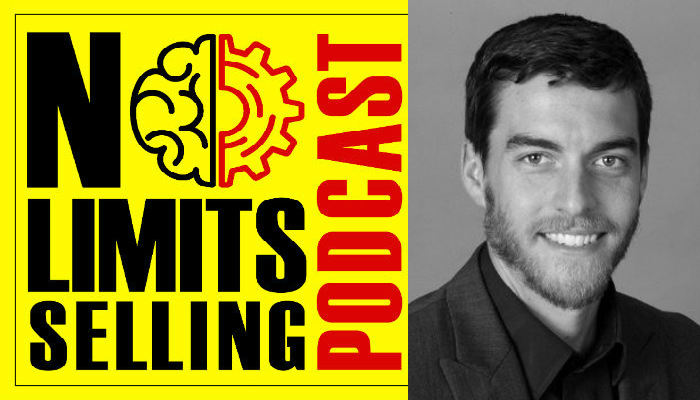How To Maximize Business Profits with Max Traylor
On Episode 141 of The No Limits Selling Podcast, we have Max Traylor. Max helps sales and marketing consultants discover what their knowledge is worth: define it, package it, and use it to improve their professional lives. He helps his clients stand out from the competition, increase personal income and deliver value more efficiently to their clients.
In this episode, Max shares with us how to maximize business profits.

Contact Max:
[EDITOR’S NOTE: This podcast is sponsored by No Limits Selling. It is a fun, fast-paced podcast that delivers hard-fought business advice that you can implement today to improve your sales and performance]
Interested In Our Real Estate Coaching Services? Explore Our Website: Link
Feeling Not Well Today? You Can Use Our Mindset Boosters App To amp Up Your Mood: Link
Find us on Social Media:
LinkedIn | Facebook community | Instagram
Like what do you listen to? Subscribe to our podcast!
Ready to become fearless? We can help you become fearless in 60 days so you accomplish more in your career Schedule A 15 min Call with Umar
Summary
Introduction and Background
The podcast features Max Traylor, a professional who guides other professionals to maximize business profits more effectively. The host, Umar Hameed, introduces the topic by discussing common societal beliefs around money and sales, most of which are negative. Max Traylor is presented as someone who helps professionals overcome these limiting beliefs and achieve better business results.
Max Traylor's Approach
Max Traylor's approach is unique in that he doesn't believe in growing an organization where people are paid to produce no results. He is critical of traditional business models where employees are incentivized to do nothing. Instead, he advocates for a freelance gig network, which he refers to as the industrial revolution of our time. He believes that self-organized, self-motivated individuals, or entrepreneurs, are the key to maximize business profits.
Client Transformation
Max Traylor discusses a real-life example of a client transformation. The client initially approached him for help selling IT services. However, after a thorough analysis of the client's situation, Max discovered that the client's greatest opportunity was to increase recurring revenues. He guided the client through a process of understanding their greatest opportunity, the challenges they faced, and how they could best leverage existing initiatives. This process led to the creation of a completely new service that significantly impacted the client's recurring revenues.
Overcoming Resistance
Max Traylor acknowledges that his approach can sometimes be met with resistance, especially from larger organizations that are set in their ways. However, he has found that larger organizations often have more unstructured processes and can benefit greatly from his services. He emphasizes the importance of understanding the client's situation and gaining their trust before proposing solutions.
Pricing and Value
A significant part of the podcast is dedicated to discussing pricing and value. Max Traylor believes that professionals often undervalue their services due to limiting beliefs about money. He encourages his clients to charge fairly for their services and has found that once they start increasing their prices, they fall in love with it. He shares an anecdote where a client thought a price sounded ridiculous, but the client responded, "Oh, I can do that."
Conclusion
In this podcast, Max Traylor, a consultant for professionals, discusses his unique approach to maximize business profits and monetization. He challenges traditional business models, advocating for a shift towards a freelance gig network where self-motivated individuals drive success. Traylor shares a real-life example of transforming a client's business by identifying their greatest opportunity - increasing recurring revenues - and guiding them through the process of leveraging existing initiatives.
He also addresses the common issue of professionals undervaluing their services due to limiting beliefs about money and sales. Traylor encourages professionals to charge fairly for their services, emphasizing that this often leads to increased satisfaction and success. The podcast serves as a valuable resource for professionals looking to scale their businesses and maximize business profits.
Questions & Answers
What is Max Traylor's unique approach to business growth?
How does Max Traylor help professionals overcome limiting beliefs about money and sales?
Can you share an example of a client transformation guided by Max Traylor?
How does Max Traylor handle resistance from larger organizations?
What is the main takeaway from Max Traylor's podcast?
Don’t miss this opportunity to transform your real estate career with one-on-one coaching. As an experienced real estate coach, I, Umar Hameed, am dedicated to helping you unlock your full potential and achieve your real estate goals. To learn more about who am I and my clients ↓
If you’re ready to take the next step, book an appointment with me today and begin your journey toward success in the real estate industry.
